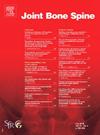肥胖和银屑病关节炎之间的权衡——是时候从关联转向稳健的随机试验了
IF 3.8
3区 医学
Q1 RHEUMATOLOGY
引用次数: 0
摘要
几乎每两个银屑病关节炎(PsA)患者中就有一个患有肥胖症。肥胖增加了PsA发生的风险,加重了疾病活动性、疼痛和疲劳,损害了治疗效果,并增加了许多已经在PsA中普遍存在的心脏代谢合并症的风险。尽管越来越多的证据表明肥胖在PsA中的致病作用,但目前的治疗主要集中在免疫介导的治疗上,对治疗过度肥胖的关注有限。PsA的残留疼痛和疾病活动反过来会对身体活动产生不利影响,导致体重进一步增加和疾病活动恶化的循环。来自PsA和肥胖患者饮食干预的初步证据表明,体重减轻≥5%可以改善疾病活动,这有望通过新的药物抗肥胖疗法获得更好的改善,例如基于肠促胰岛素的减肥药,其平均体重减轻15-20%。在这篇叙述性综述中,我们概述了肥胖对PsA的不利影响,并讨论了目前可用的减肥疗法来帮助解决这一问题。我们强调,迫切需要对PsA和肥胖患者的减肥疗法进行强有力的随机对照试验,以确定其在PsA管理中的临床和成本效益,并告知在疾病过程和治疗途径中最佳实施的地方。本文章由计算机程序翻译,如有差异,请以英文原文为准。
Weighing in on obesity and psoriatic arthritis – Time to move beyond association to robust randomised trials
Almost one in two individuals with psoriatic arthritis (PsA) are now living with obesity. Obesity increases the risk of developing PsA, worsens disease activity, pain and fatigue, impairs treatment response, and amplifies the risk of many cardiometabolic comorbidities already more prevalent in PsA. Despite the increasing evidence for the pathogenic role of obesity in PsA, current treatment focuses on immune mediated therapies, with limited attention to tackling excess adiposity. Residual pain and disease activity in PsA can in turn adversely impact physical activity, leading to a cycle of further weight gain and worse disease activity. Preliminary evidence from dietary interventions in patients with PsA and obesity suggests weight loss of ≥ 5% body weight can improve disease activity, holding promise for potentially even better improvements with newer pharmacological anti-obesity therapies, such as incretin-based weight loss medicines, which result in average weight losses of 15–20%. In this narrative review, we provide an overview of the adverse impacts of obesity in PsA and discuss weight loss therapies now available to help address this. We highlight the urgent need for robust randomised controlled trials of weight loss therapies in patients with PsA and obesity to determine their clinical and cost effectiveness in PsA management and to inform where these are best implemented in the disease course and treatment pathway.
求助全文
通过发布文献求助,成功后即可免费获取论文全文。
去求助
来源期刊

Joint Bone Spine
医学-风湿病学
CiteScore
4.50
自引率
11.90%
发文量
184
审稿时长
25 days
期刊介绍:
Bimonthly e-only international journal, Joint Bone Spine publishes in English original research articles and all the latest advances that deal with disorders affecting the joints, bones, and spine and, more generally, the entire field of rheumatology.
All submitted manuscripts to the journal are subjected to rigorous peer review by international experts: under no circumstances does the journal guarantee publication before the editorial board makes its final decision. (Surgical techniques and work focusing specifically on orthopedic surgery are not within the scope of the journal.)Joint Bone Spine is indexed in the main international databases and is accessible worldwide through the ScienceDirect and ClinicalKey platforms.
 求助内容:
求助内容: 应助结果提醒方式:
应助结果提醒方式:


